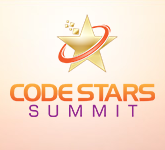N3892: C++ Ostream Buffers -- Lawrence Crowl
A new WG21 paper is available. A copy is linked below, and the paper will also appear in the next normal WG21 mailing. If you are not a committee member, please use the comments section below or the std-proposals forum for public discussion.
Document number: N3892
Date: 2014-01-20
C++ Ostream Buffers
by Lawrence Crowl
Excerpt:
At present, stream output operations guarantee that they will not produce race conditions, but do not guarantee that the effect will be sensible. Some form of external synchronization is required. Unfortunately, without a standard mechanism for synchronizing, independently developed software will be unable to synchronize.
... The general consensus in the July 2013 meeting of the Concurrency Study Group was that buffering should be explicit. This paper proposes such an explicit buffering.

 From new C++ user groups springing up across Europe and upcoming conferences, to the Boost refactoring and (of course) C++14, Jens Weller has a nice piece previewing some of the things to look forward to for C++ in 2014.
From new C++ user groups springing up across Europe and upcoming conferences, to the Boost refactoring and (of course) C++14, Jens Weller has a nice piece previewing some of the things to look forward to for C++ in 2014. Michael Caisse and Jon Kalb will be conducting a two-day training class on C++11 in San Francisco in March as part of the
Michael Caisse and Jon Kalb will be conducting a two-day training class on C++11 in San Francisco in March as part of the